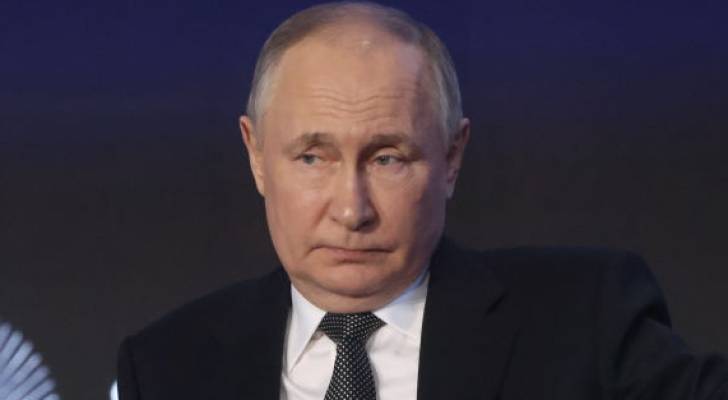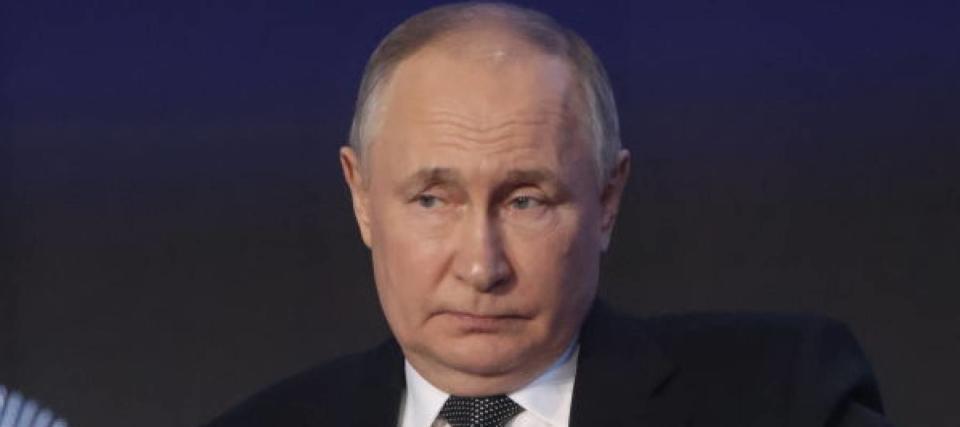Russia’s Vladimir Putin claims the Biden administration is ‘killing’ the USD by using it as a weapon — says ‘blow was dealt’ to America and even its allies are now ‘downsizing’ the dollar


Russia’s president Vladimir Putin has the U.S. dollar in his crosshairs.
But Putin, who recently appeared in a highly divisive interview with Tucker Carlson, seems to believe President Joe Biden’s administration has no one but themselves to blame for that, accusing them of “killing [the dollar] with their own hands” by using the currency as a weapon of foreign policy.
Don’t miss
“The dollar is the cornerstone of the United States’ power… it is the main weapon used by the U.S. to preserve its power across the world,” the Russian leader said. “As soon as the political leadership decided to use the dollar as a tool of political struggle, a blow was dealt to this American power.”
Putin’s next step appears to be to launch its own settlement and payment system for the so-called BRICS nations. In an interview with Sputnik, the Russian state media, Finance Minister Anton Siluanov said the planned system will be “outside of politics, independent of Western unfriendly infrastructure.”
Siluanov told Sputnik Russia is ready to test what it’s calling a BRICS Bridge System with any countries that express an interest.
In his interview with Carlson — where his comments were translated live from Russian to English — Putin suggested the de-dollarization effort was seeing some success, with even U.S. allies “downsizing the dollar in their reserves.”
Should the Biden administration be worried?
Was the writing on the wall?
De-dollarization occurs when countries shift away from the dollar as a reserve currency, medium of exchange or unit of account. The U.S. has repeatedly dismissed any notions that this is a problem — instead deeming it a “natural desire [for countries] to diversify” their economies.
But Putin implied Russia’s hand was forced to ramp up its de-dollarization plans after its invasion of Ukraine in 2022, which triggered a backlash of heavy sanctions by the U.S. and other Western powers. Russia was also kicked off the world’s main international payments network Swift.
“Look at what is going on in the world,” Putin told Carlson. “Until 2022, nearly 80% of foreign transactions in Russia were settled in U.S. dollars or euros. Currently, it is now down to 13%… By the way, our transactions in yuan accounted for about 3%. Today, 34% of our transactions are made in rubles, and about as much, a little over 34%, in yuan.”
Since the interview aired, Russia’s opposition leader Alexei Navalny died in a Siberian prison. The death coincided with the two-year anniversary of Russia’s invasion of Ukraine, which the White House marked by introducing more than 500 new sanctions on the state.
“The American people and people around the world understand that the stakes of this fight extend far beyond Ukraine,” Biden said in a statement, when announcing the sanctions. “If Putin does not pay the price for his death and destruction, he will keep going. And the costs to the United States — along with our NATO Allies and partners in Europe and around the world — will rise.”
While Putin blamed the sanctions in his interview with Carlson, many would argue the writing has long been on the wall regarding Russia’s de-dollarization.
Russia is a founding member of BRICS, a group of emerging market economies — including China, India, Brazil, South Africa and many more — who are trying to settle major trades in their local currencies instead of the U.S. dollar. This movement is gaining momentum as countries try to reduce transaction costs, limit their exposure to global volatility and geopolitical risks and boost their local economies.
Read more: Rich young Americans have lost confidence in the stock market — and are betting on these 3 assets instead. Get in now for strong long-term tailwinds
What does the de-dollarization data say?
The Russian president’s warning about the greenback is well-timed. It comes amid heightened speculation around the dollar’s position as the world’s reserve currency, in large part due to the nation’s historic $34 trillion mountain of debt.
According to data from the IMF, the greenback’s share of global allocated foreign exchange reserves has fallen by around 6% since early 2016.
However, the U.S. dollar still accounted for 59.17% of global allocated foreign exchange reserves in the third quarter of 2023 (the latest data set) — a stark contrast to the Chinese yuan’s 2.37% of reserves in the same period.
Analysts at FXC Intelligence, who recently published a report on de-dollarization, stated: “Our research shows that de-dollarization is happening, but… it is by no means rapid.
“It is instead currently on course to be a slow process over the next couple of decades as countries shift to a broader range of currencies, likely to provide greater hedging from future possible geopolitical shocks.”
What to read next
This article provides information only and should not be construed as advice. It is provided without warranty of any kind.



